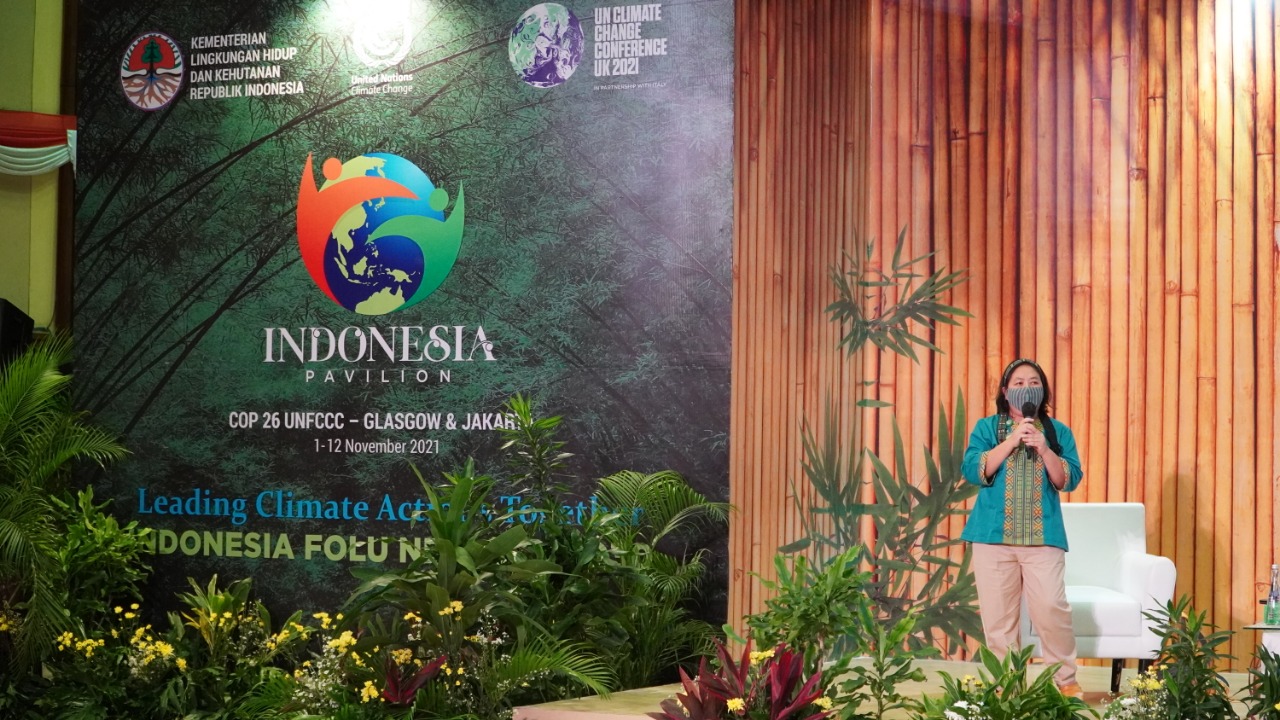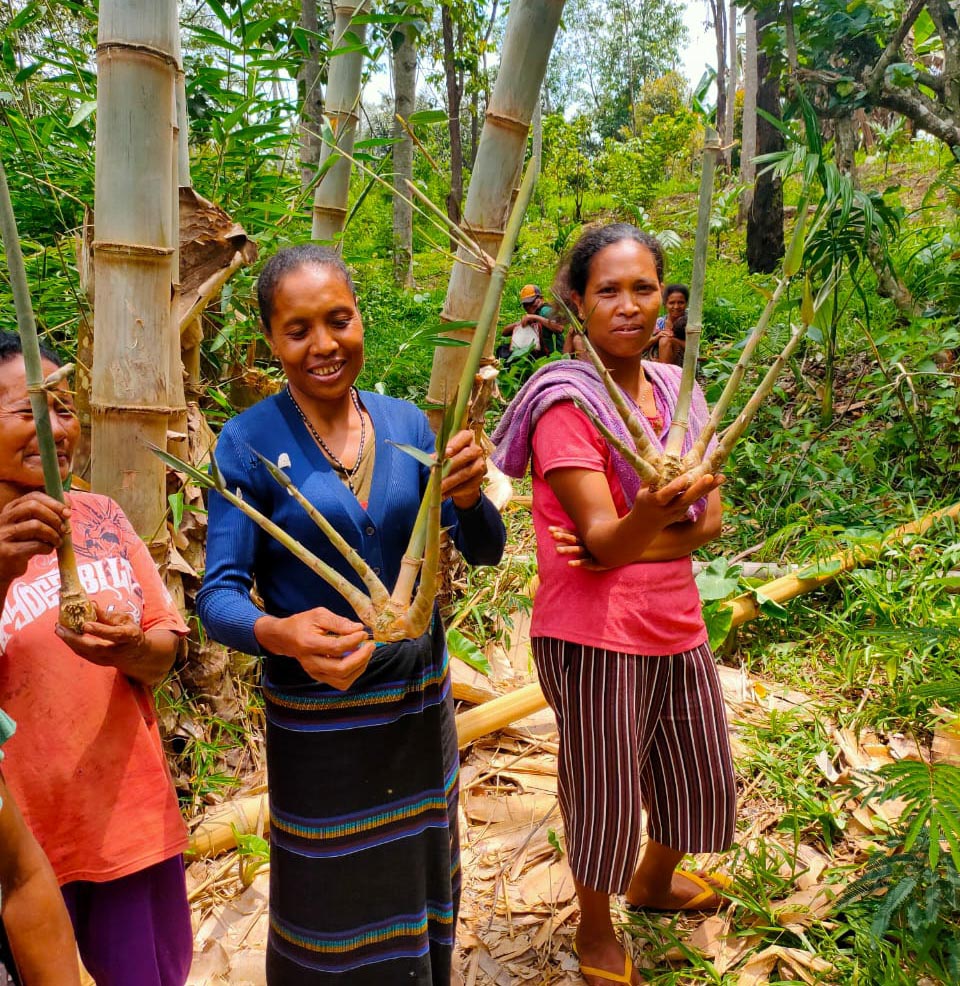Australian-Indonesian bamboo project shines at COP26

A bamboo development project that’s improved the lives of women and helped mitigate the effect of climate change in Indonesia was showcased at the world’s largest climate gathering, the 26th UN Climate Change Conference of Parties (COP26).
Supported by ACIAR, the KANOPPI-2 project looked to repurpose bamboo to generate income for Indonesian rural communities. It also repositioned the non-timber forest product to underpin a sustainable industry delivering added “value” to the economy and environment.
Project coordinator Desy Ekawati shared the lessons from the project and her work with the Environmental Bamboo Foundation as part of her presentation at COP26.
Presenting in a session titled “Women Saving the Planet: Gender Equality in the Fight for Climate Change”, Mrs Ekawati told the global audience how rural Indonesian women have used bamboo as a climate change adaption and mitigation measure.
ACIAR Research Program Manager Forestry, Dr Nora Devoe said it was gratifying to know Mrs Ekawati—a young woman working in forestry—showcased this vital work.
‘Obviously for ACIAR, to be on the world-stage with our project is a great opportunity,’ Dr Devoe said.
‘However, we see that the real star is Desy, the reason the ACIAR project covered the ground and achieved what it has, is because of her. I feel good that our project provided her with the opportunity to shine and I’m really pleased we have someone like her to champion this part of the project.’
Dr Devoe said the project champions women as a vehicle for generating income in remote communities, by providing jobs and training in bamboo nurseries and the supply chain.
It teaches the practices of sustainable bamboo forestry to farmers.
Sustainable bamboo forestry ensures the sustainability and productivity of bamboo clumps, Mrs Ekawati said.
‘The outcome is the establishment of sustainable bamboo forestry in community groups and increased capacity building on bamboo agroforestry management,’ she said. ‘On the other hand, we established a women’s group that prepared the bamboo seedlings… for the restoration programs supported by Provincial Government.’
One group that benefitted from this work is a sub-tribe in the regency of Ngada on the island of Flores, East Nusa Tenggara Province, called “sao negu wula”. The small group, consisting of just five families, owns 15 hectares of communal bamboo and have been involved in sustainable management activities through the project.
‘In 2018, they earned about 100 million Indonesian rupiah (A$9,400) for selling bamboo,’ Mrs Ekawati said.
Despite the KANOPPI-2 research initiative finishing soon, Mrs Ekawati said the project had long-lasting impact, especially around the concept of “bamboo value”.
‘Before the utilisation of bamboo as an industrial material, [the families] only used bamboo for domestic and social-culture purposes, but now they can sell their bamboo to the local industry,’ she said. ‘Providing not only value for the economy but with the community we reinvented the environmental services and sustainability of bamboo.’
The KANOPPI-2 project—Developing and promoting market-based agroforestry options and integrated landscape management for smallholder forestry in Indonesia—commenced in 2017 and was funded through the ACIAR Forestry Research Program.




